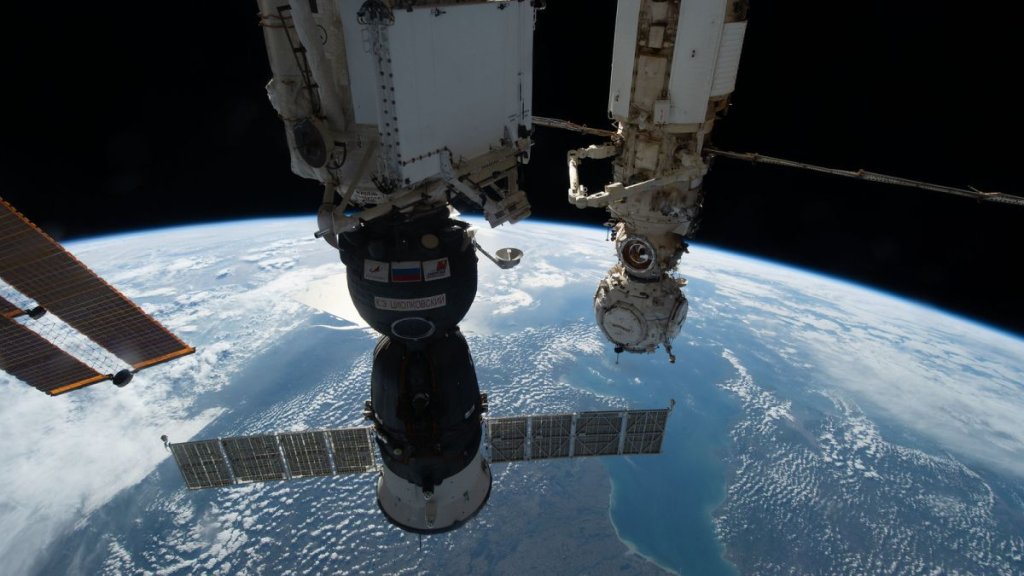Russia has pushed the launch of its next Soyuz spacecraft to the International Space Station (ISS) into March, a delay of a few weeks.
Soyuz vehicles are designed to carry astronauts, but this one, known as MS-23, will launch in an uncrewed state. It will be a replacement for the Soyuz MS-22 craft, which sprang a leak on Dec. 14 and lost all of its coolant to space, a problem that Russia’s space agency Roscosmos traced to a likely micrometeoroid strike.
MS-22 is still docked to the ISS but has been deemed unfit to bring astronauts home to Earth, unless an emergency evacuation of the ISS is needed. So MS-23 will become the new ride home for the MS-22 crew, which consists of cosmonauts Sergey Prokopyev and Dmitry Petelin and NASA’s Frank Rubio.
Related: Russia to launch new Soyuz capsule to replace leaky spacecraft on space station
The plan had called for MS-23 to launch from the Russia-run Baikonur Cosmodrome in Kazakhstan on Feb. 19. But that timeline has now been pushed back, thanks to a leak on another Russian spacecraft docked with the ISS — the Progress-82 freighter, also known as Progress MS-21, which launched in late October.
The leak involves the Progress’ coolant system. But Roscosmos isn’t sure what caused it, which explains the launch delay; the agency presumably wants to ensure there’s no broader issue affecting all Soyuz and Progress vehicles before letting Soyuz MS-23 get off the ground.
“A commission is working on the Progress MS-21 case. Until the cause of the emergency situation is determined, a decision was made to postpone the launch of the Soyuz MS-23 spacecraft in unmanned mode until March 2023,” Roscosmos wrote in a Telegram post on Monday (opens in new tab) (Feb. 13). (The post was in Russian; translation by Google.)
Neither leak poses a danger to the astronauts aboard the ISS, NASA and Roscosmos officials have said.
The Soyuz MS-23 launch delay likely won’t affect the missions of Rubio, Prokopyev and Petelin much, if at all. The trio was already scheduled to stay aboard the ISS until late September or so, a change made shortly after the MS-22 leak was discovered.
Originally, the MS-22 crew had been slated to spend a standard six-month stint aboard the orbiting lab. They came up on MS-22 in September 2022 and were supposed to fly back home on the vehicle next month.
Mike Wall is the author of “Out There (opens in new tab)” (Grand Central Publishing, 2018; illustrated by Karl Tate), a book about the search for alien life. Follow him on Twitter @michaeldwall (opens in new tab). Follow us @Spacedotcom (opens in new tab), or on Facebook (opens in new tab) and Instagram (opens in new tab).

